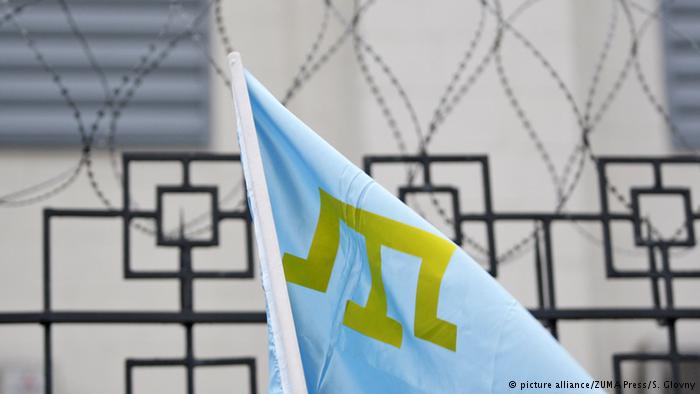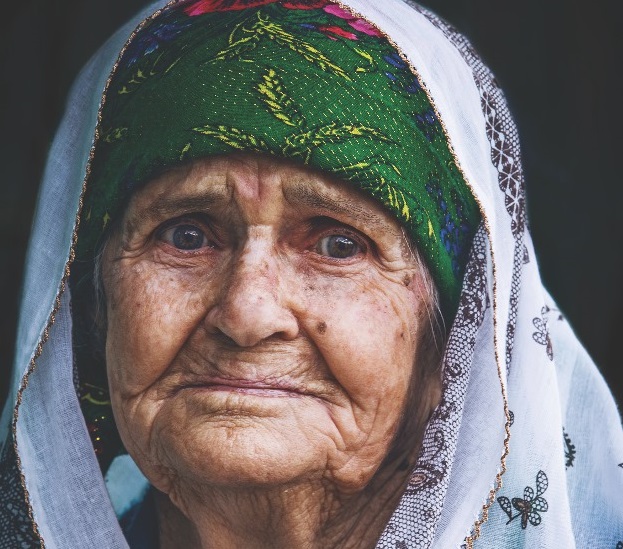The self-proclaimed prosecutor of Crimea Nataliya Poklonskaya decided not to wait for the predictable decision of the “court” and decided to immediately “suspend” the activities of the Mejlis. She proudly announced this on her facebook page (by the way, there is no word of this on the site of the so-called Crimean prosecutor’s office).
The legal basis for this decision were the repressive provisions of the Russian legislation, namely the Federal Law “On combating extremist activity,” which has been illegally introduced on the territory of the occupied peninsula, contrary to international humanitarian law.
It is important to understand that, in itself, the self-proclaimed Crimean Prosecutor’s appeal to the Ministry of Justice to include the Crimean Tatar Mejlis in the list of “civic and religious associations, whose activities are suspended in connection with the exercise of extremist activity ” is nothing more than another product of the occupation authorities’ bizarre fantasies. The Mejlis is not a civic association within the meaning of the Federal Law “On civic association,” which is why it is simply impossible to close it or suspend its activities.
The Mejlis is the main representative body of indigenous Crimean Tatar people. The Declaration on the Rights of Indigenous Peoples provides that “Indigenous peoples have the right to participate in decision-making in matters which would affect their rights, through representatives chosen by themselves in accordance with their own procedures, as well as to maintain and develop their own indigenous decision-making institutions.” As an organ of national representation, it is formed by implementing the right to vote and the right to self-determination. And it has nothing to do with the right of individuals to associate.
It is interesting that this decision of the self-proclaimed prosecutor is unusual even for authoritarian Russia. The Russian Federal Register on combating extremism lists only one association that had been suspended.
Now Natalia Poklonskaya can safely wait for the court’s decision to ban the Mejlis, which made the occupation authorities excessively nervous, for months. According to Russia’s anti-extremist legislation, the suspension of a civic organization carries a number of legal consequences. In particular, “it is forbidden to use state and municipal mass media, to organize and hold meetings, rallies, demonstrations, marches, picketing and other mass actions or public events, participate in elections and referendums, use bank deposits, with the exception of their use for settlements related to their economic activities, reimbursement of damages caused by their actions (damages), payment of taxes, fees or fines and settlement of labor contracts.” Violation of these provisions entails quite strict liability.
In this situation, it is worth recalling that in February 2016 the European Parliament adopted a resolution which stressed the systemic violations of fundamental rights and freedoms of the local population by the Russian occupation authorities, especially terror towards the Crimean Tatars. In March 2016, a group from the European Parliament appealed to Federica Mogherini, the EU representative for foreign affairs, to send representatives of the diplomatic corps of the EU to the court hearings on the prohibition of the Mejlis.
As you can see, Russia clearly demonstrated to the EU what it thinks of its resolutions. So it would be good to move from words to specific actions, which Russia would understand.
The EU sanctions that were introduced as a response to the annexation of Crimea are weak if you consider the fact that this is one of the few cases in the history of post-war Europe when during peacetime one country occupied and annexed the territory of another independent state, thus violating all existing international obligations.
Therefore, the EU should have begun to intensify sanctions imposed in connection with Crimea long ago, to adequately respond to the rapid curtailment of rights and freedoms in the Crimea and persecution of people who are left one-on-one with the invaders.








